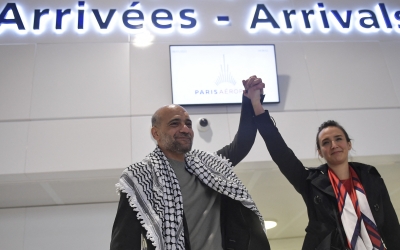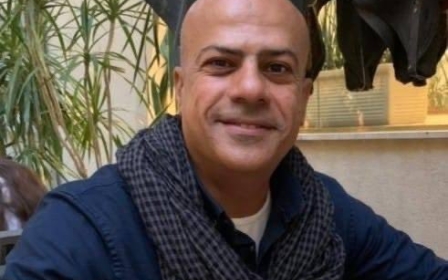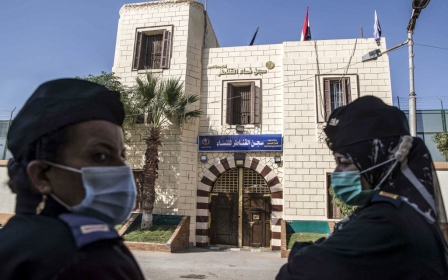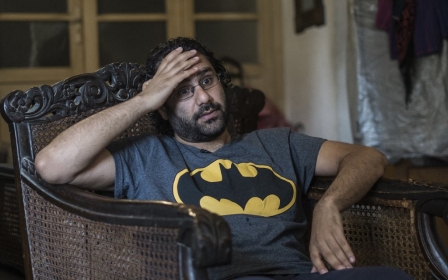Alaa Abd el-Fattah: Egyptian political prisoner gets British passport
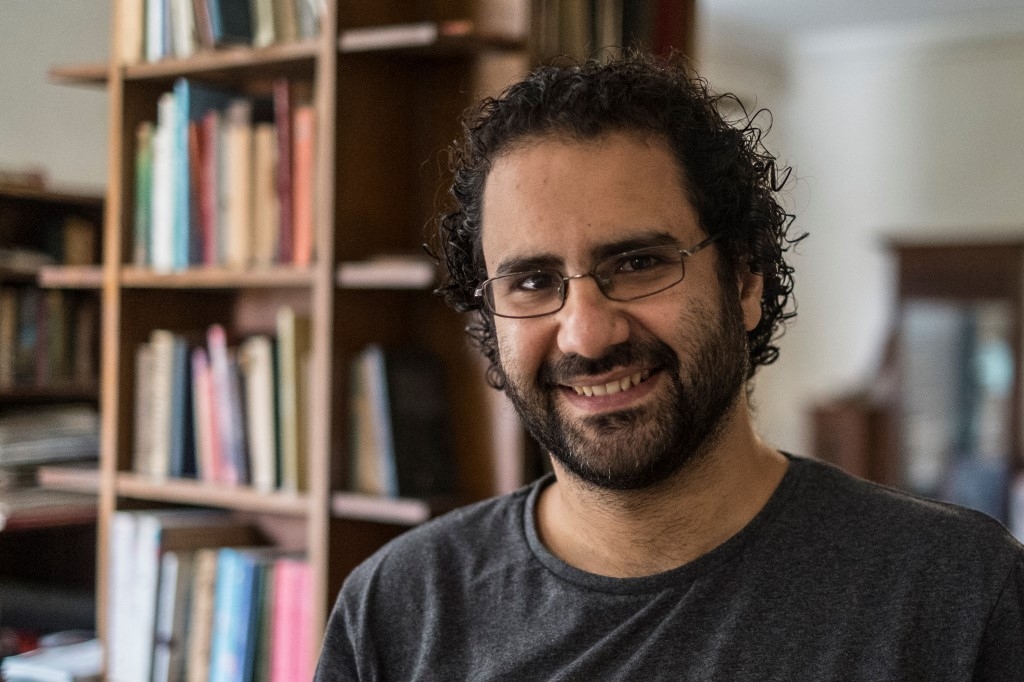
Egyptian activist Alaa Abd el-Fattah is now a British citizen, his family said on Monday. Having another nationality means the prominent activist, who has been in prison for more than three years, could be released.
Abd el-Fattah has been on hunger strike for 10 days in protest against his prolonged detention.
Several Egyptian political prisoners who hold foreign passports have been released in recent years, following a decree issued on 13 November 2014 by President Abdel Fattah el-Sisi allowing the repatriation of jailed foreigners to their home countries.
The latest case was the Egyptian-Palestinian Ramy Shaath, who was forced to renounce his Egyptian nationality as a pre-condition for his release in January.
The law also enabled authorities to release Al Jazeera journalist Peter Greste, an Australian citizen who had been sentenced to seven years in prison a few months before his release.
Speaking to the Associated Press on Monday, Abd el-Fattah’s family said he gained British citizenship through his mother Laila Soueif, who was born in London. The family told the news agency that they sought a British passport as a way out of his "impossible ordeal".
The family told the AP that they called for an investigation into alleged rights abuses committed against him during his detention, and requested authorities to allow him consular visits in prison.
“This is a British citizen detained unlawfully, in appalling conditions, simply for exercising his basic rights to peaceful expression and association,” said Daniel Furner, one of the family's lawyers.
Abd el-Fattah's sisters Mona and Sanaa said in a statement that they began exploring the possibility of taking British citizenship in 2019 when "it became clear that Sisi’s prisons would refuse to release our family and we had to find some way out of this impossible ordeal". Mona and Sanaa have also taken British citizenship, they said.
"Alaa is asking for urgent action from both Egypt and Britain’s judicial institutions; and we join him in his call," the sisters said.
Years in jail
The left-wing blogger and icon of the 2011 uprising was sentenced to five years in prison by an emergency state security court in December on charges of spreading “false news", in a trial widely condemned by human rights defenders.
In the same case, his co-defendants' human rights lawyer Mohamed el-Baqer and blogger Mohamed "Oxygen" Ibrahim were sentenced to four years.
The trio were arrested in September 2019 and held in pre-trial detention for more than two years, which exceeds the maximum amount under Egyptian law.
In September, Abd el-Fattah's lawyer said the activist was seriously considering suicide in prison due to the dire conditions of his detention.
Abd el-Fattah has served several intermittent prison terms since 2011 for participation in anti-government protests.
Before his 2019 arrest, Abd el-Fattah had been jailed on charges of protesting without permission in 2013, sentenced to five years in prison in February 2015, then was granted conditional release in March 2019.
The terms of his parole at that time meant that he had to spend every night in a cell in his local police station, where he was arrested again in September of the same year at the time of anti-government protests that he did not take part in.
Since the 2013 military coup led by general-turned-president Sisi, which ousted his democratically elected predecessor Mohamed Morsi, Egypt has witnessed what rights groups have described as the worst crackdown on human rights in the country's modern history.
Thousands of supporters of Morsi, who belong to the outlawed Muslim Brotherhood, as well as secular activists like Abd el-Fattah, have been detained since the coup. Many have died in custody due to poor prison conditions and medical negligence.
Middle East Eye propose une couverture et une analyse indépendantes et incomparables du Moyen-Orient, de l’Afrique du Nord et d’autres régions du monde. Pour en savoir plus sur la reprise de ce contenu et les frais qui s’appliquent, veuillez remplir ce formulaire [en anglais]. Pour en savoir plus sur MEE, cliquez ici [en anglais].


